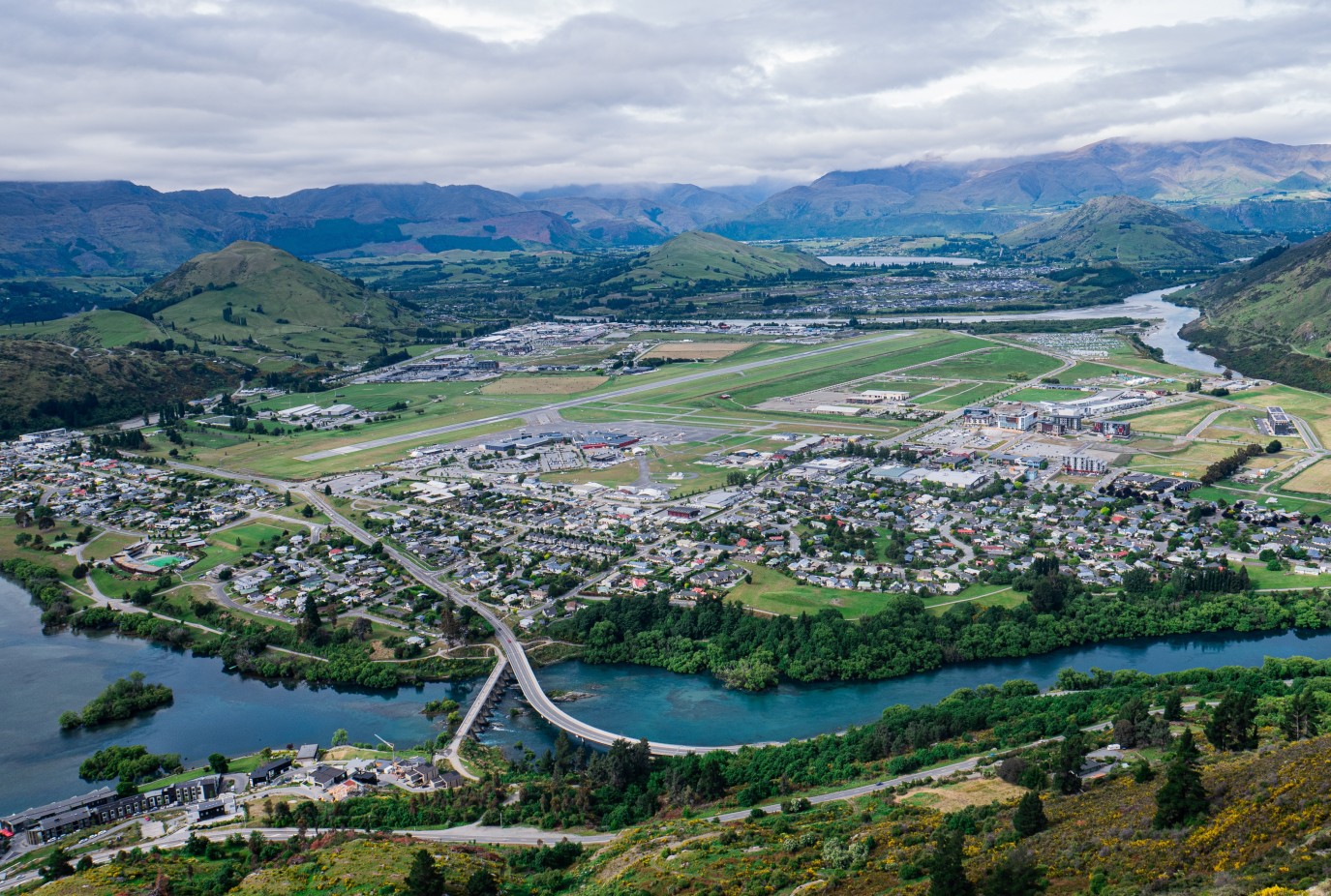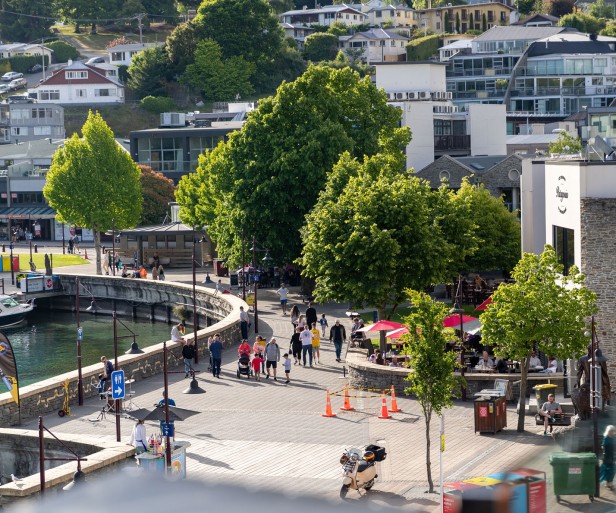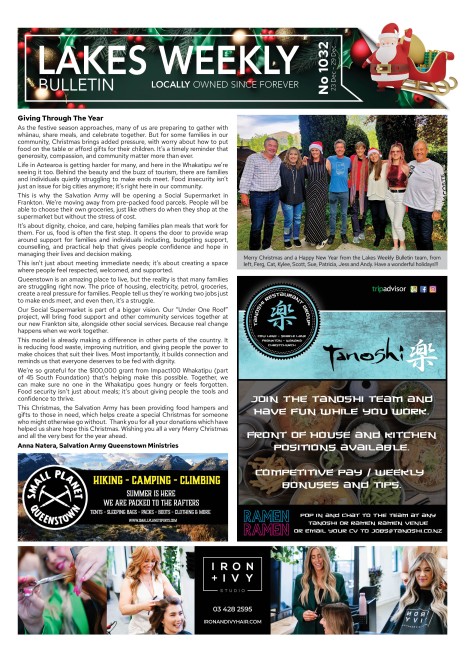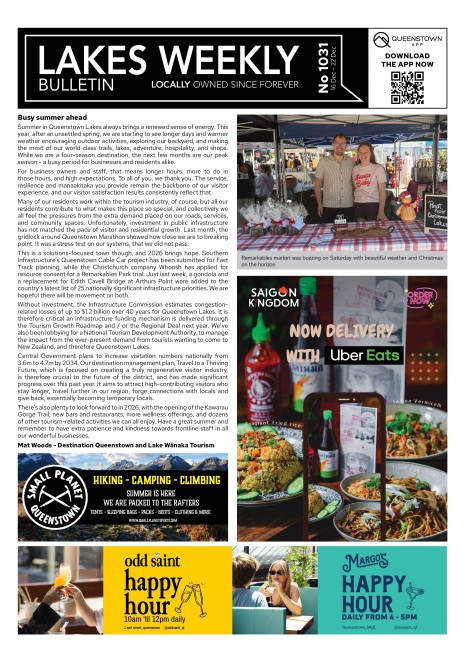Economist: A problem we can’t build our way out of

Arrowtown-based economist Benje Patterson is calling on Queenstowners to invite a lodger into their homes this winter to help ensure the town is adequately staffed this ski season.
Desperate Queenstown workers may have pitched a tent or slept in cars during the hot summer months, says Patterson, but we face losing them if a temporary fix isn’t found by winter.
“Many of them just won’t stay. They’ll pack up and leave as the chill of winter bites in, worsening the town’s already crisis-point worker shortages.
“We’ve struggled to get a full workforce and it’s starting to build up again now. We can’t afford to lose those valuable workers,” says Patterson.
He’s urging local homeowners to consider renting out a room short-term to get the town through its busy winter peak, and at the same time, help pay the mortgage.
“A lot of families are struggling with higher living costs and increased mortgage interest rates so I’m saying invite a short-term lodger to stay and help pay for all that.”
“It’s not like we need thousands of people to do it – a couple of hundred households spread throughout our suburbs would make a huge difference,” he says.
“If the budget’s squeezed and you have a spare bedroom it may be something you can consider for a couple of months. There’s no difficult compliance and there don’t need to be any tax implications.”
For example, according to the Inland Revenue Department website, Patterson says homeowners can avoid declaring short-term rental income for up to four consecutive weeks at a time and up to 100 nights a year.
“People can charge up to $55 a night, that’s $385 a week, tax-free. That’s potentially more than $5,000 a year.”
It’s only a temporary measure, but one that’s advantageous for both parties until a suitable long-term solution is found, says Patterson. Any permanent fix will require “extensive consultation” with the government, local government, developers, businesses and the community.
MBIE Bond Centre data shows that the Queenstown area lost 100 rental properties during the past year.
“Those could house three, four or five people, meaning several hundred people are affected,” says Patterson.
“In December alone we lost more than 30 properties out of the rental pool.”
A Queenstown Chamber of Commerce pulse check reported that just 15 per cent of local businesses said they had no problems with staff housing.
Patterson says it’s not a problem we can build our way out of.
“In Queenstown, we’re superstars at building. We’re a small town that builds like a big city. Around 1,400 building consents for new dwellings have been issued across the district during the past year – close to 4,000 during the past three years.”
The rate of new building in the Whakatipu Basin is well ahead of the current population growth, he says. The region gained an estimated 2,000 extra new homes in the last three years than was needed to keep pace with population growth.
“We’re building more homes than we need to house our growing population, but are they suitable for workers and those wanting to downsize and retire?
“[…] We have fewer rental houses, we’re building way more houses than we need, yet our staff can’t find housing, so where is it going?”
While Airbnb and Book a Bach are being slammed as the culprits in ‘the Court of Public Opinion’, Patterson says it’s unfair to solely apportion blame there.
“Queenstown has gained about 400 additional short-stay accommodation listings during the past year, but that’s still below pre-Covid times. In December 2021 we had about 2700 short-stay accommodation listings. That had risen to about 3200 by December last year, still well below 2019.”
We don’t need an oversupply of Airbnb properties, but it’s a helpful option for many families feeling the pinch, he says.
Patterson says there’s been some potentially well-intentioned tightening of government legislation like the Tenancy Act and Healthy Homes standards, however, these may have inadvertently exacerbated the rental housing shortage by pushing homeowners into short-stay options or leaving the home vacant.
Ultimately, Patterson adds, the difficulty with lobbying the government is that the problem is more acute in Queenstown than elsewhere in New Zealand. The community needs regionally tailored solutions.









